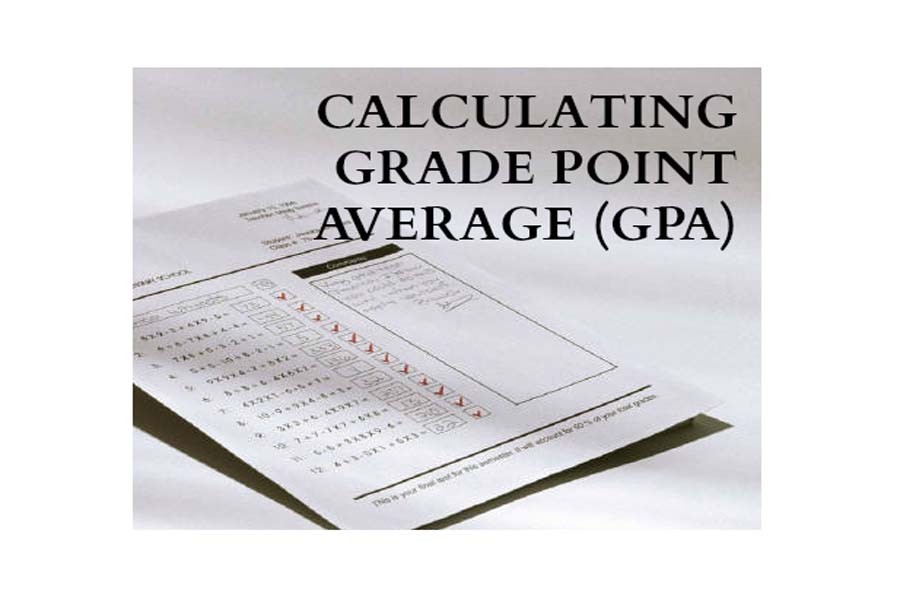Education, by and large, has turned more into a spending machine than a return generating one for society. The higher education mania at any cost has dragged us into a trap from where no immediate reprieve is likely. The current situation that we are observing and experiencing is not a sustainable picture at all. Such dire situation forebodes several red warnings for us which compel us to ponder seriously upon the future of our education, both in terms of long term sustainable growth and healthy income generation.
The ominous character of the current trend of education will take some time to be fully exposed. However, both the policymakers and politicians suffer from a sense of complacency. Politicians, in particular, seem to be mainly interested in citing spurious statistics to laymen to boost up political propaganda.
The trend of deterioration first took off with the madness of number counting - the inflating trend of GPA. However, cutting the number to half or so is not a solution. The concern is about quality, and quality must stem from proper screening and rationing. Education serves its ultimate purpose when we put due restrictions on undesirable accomplishments of students. If this not ensured, then students become accustomed to the thinking that number and grade is all that matters - without little or no merit at all.
We are currently facing a pool of students whose brains have already been dimmed by the so-called number game - the easy grading and scoring. Our politicians, who are complacent about such trend, are appallingly unaware of the dire picture we face at the university level.
However, the solution is also out of the reach of the universities because universities are such places where we encourage independent learning and investigation. The groundwork for such independence and learning must take place at schools and colleges where they must go through stringent quality checks.
If one were to cite examples of the gloomy picture of students in the country, one would find millions of examples-some outright appalling. In our experience, we didn't see such a vehemently portentous trend before. Education was not in such a bad situation in terms of quality before, to say at least. The responsibility must, first, fall squarely on the policymakers who are flabbergasted by the number games and then on the shoulders of teachers at school and college level who are instrumental in spoiling the mindset of the students and whatever potential that they have.
As for the economic aspect, the situation doesn't provide any better signal at all. Growth of a nation ultimately depends on the human capital which is more or less known to us. Temporary or superficial success will hardly compensate for the damages done to the overall education system. Whether our growth momentum will sustain or not rests on the quality of human resources groomed by schools, colleges and universities. Universities are the powerhouse of producing effective human capital that drives the growth momentum. However, this is true only when universities get students who are ready to take the challenges they are to face and overcome. Unfortunately, this is not the case at all. On the other hand, indiscriminate access to higher education has added an extra salt to the bleeding wound.
Higher education, to put it rather bluntly, should not be treated as a commodity which everybody has a right to access. But this is what is going on in our country. Money matters more than education; when money comes into the picture, the situation is spoiled beyond repair. If higher education becomes easily accessible with money, it will become a burden for society in the long run. We are producing a lot of graduates every year most of whom crave for jobs. In most cases, even if jobs were available, these are not that attractive enough in cost-benefit perspective - the cost of education and salary offered. Costs of education are far too higher than return from jobs.
Coming to the issue of unemployment, we don't find any plausible reason other than the poor quality of education. At the deepest level, the poor screening mechanism is largely responsible for the skewed distribution of jobs seekers. If proper screening is employed, the education sector will be able to produce quality graduates suitable for myriad variety of jobs. A strong screening mechanism will force people move away from lofty and unnecessary education for which they are hardly eligible. This will force them to look for career-oriented courses, and in the worst case, to drop from higher education which also makes sense from economic point of view.
Higher education at high price enthuse those who are not qualified to meet the standards and who ultimately find their way to the unemployment pool. Just as bank loans should not be availed of at any rate of interest -- no matter how low or high the rate is -- higher education should also not be accessed by money only.
We should not aspire to build a nation where everybody has to be provided with higher education without required screening. The huge pool of unemployed youth in the country is largely due to indiscriminate access to higher education.
The writer is a faculty member, School of Business and Economics, North South University.


